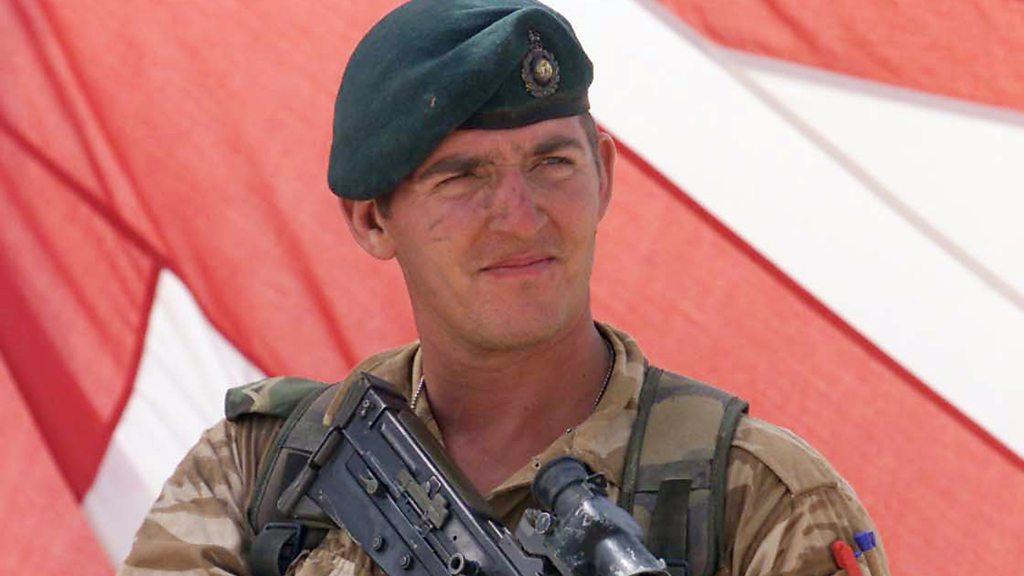Marine E reveals identity and suicide attempt
- Published
"I didn't feel like I did anything wrong," Mr Deen told the BBC's Victoria Derbyshire programme
An ex-Royal Marine who was accused of the murder of a wounded Taliban fighter has told the BBC he tried to kill himself after hitting "rock bottom".
Sam Deen, known until now as Marine E, admitted that in Afghanistan in 2011 he offered to shoot the insurgent, who was then killed by Sgt Alexander Blackman - also known as Marine A.
Charges against Mr Deen were later dropped.
He believes not killing him would have risked British casualties.
"I didn't feel like I did anything wrong," Mr Deen said. "He was going to die anyway. He was probably already dead," he told the BBC's Victoria Derbyshire programme.
Mr Deen is speaking out for the first time, after a military court lifted an anonymity order.
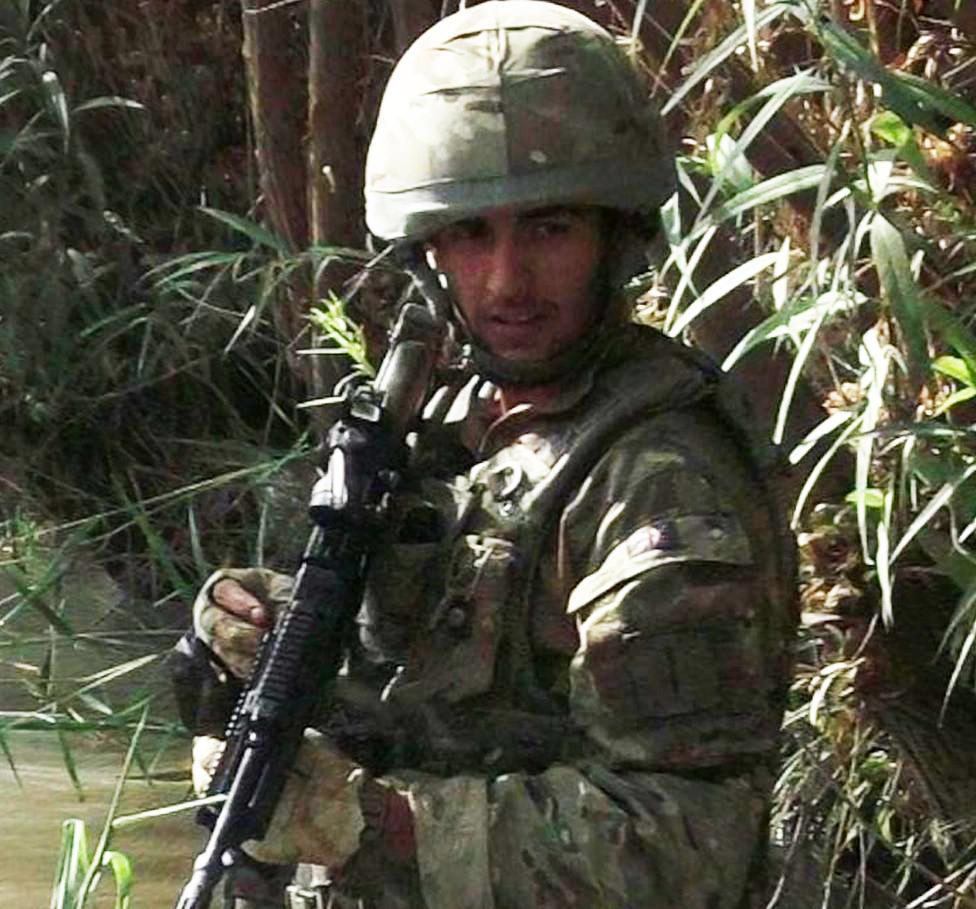
Charges against Mr Deen were dropped in February. He left the Marines in 2015
The insurgent who was killed had been seriously injured in an attack by an Apache helicopter. He was shot by Blackman in the chest at close range with a 9mm pistol in Helmand Province, Afghanistan.
Mr Deen admitted he had told comrades: "Let's just put one in his head, let's just do it."
He added: "I said, 'I'll shoot him'."
The ex-Marine said that at the time the group had felt "exposed", having stormed a Taliban compound.
"We were like, 'What are we doing here? Let's just get out of here'," he said.
"I was trying to influence it in a way to try and hurry up and get things done - and fit in as well."
Once the Taliban fighter had been shot, he said, "It was like, 'Right that's done, let's just go'.
"It had to be that way. He was going to die anyway."
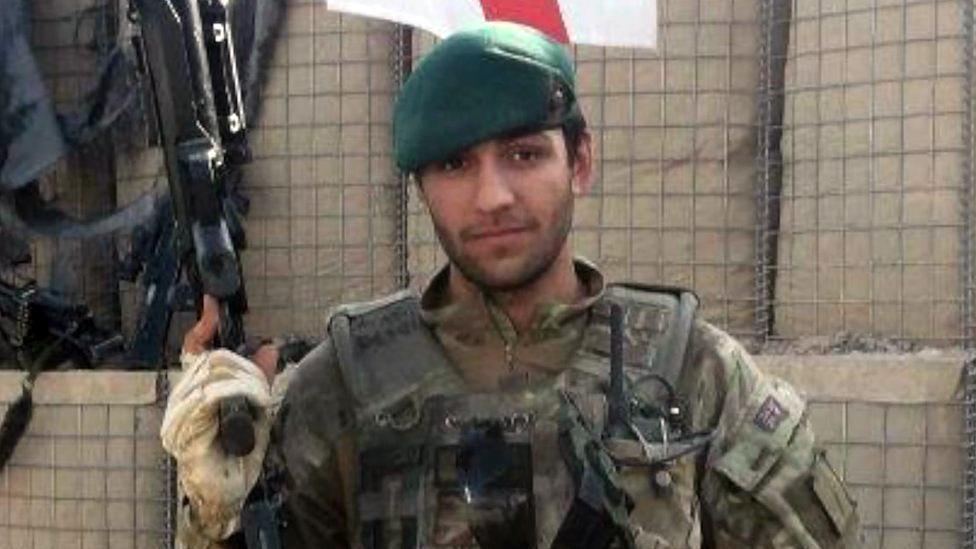
Mr Deen says he has struggled with his mental health
Mr Deen said he was in Gibraltar - in October 2012 - when he first heard he was to be charged by British police.
"I was like... 'How can you charge me with full-on murder when I didn't kill anyone?'
"The whole situation was used as a scapegoat for the military. They had to be seen to be doing something.
"If they were going to do that, they should bring up thousands of cases in every single war."
Four months later charges against Mr Deen were dropped. He left the Royal Marines in 2015.
It was then, he said, that his mental health suffered.
'Panic attacks'
"I left the blanket of the military, the cover of protection, and then you're just a civilian now.
"I just totally went off the rails... hit rock bottom in my mind, in my brain."
Last year, he attempted to end his life.
"I was having panic attacks. I just thought, 'I don't want to live like this anymore'. I tried to take an overdose.
"You go from being a Royal Marine in control, knowing what he's doing in life, to then leaving and losing control."
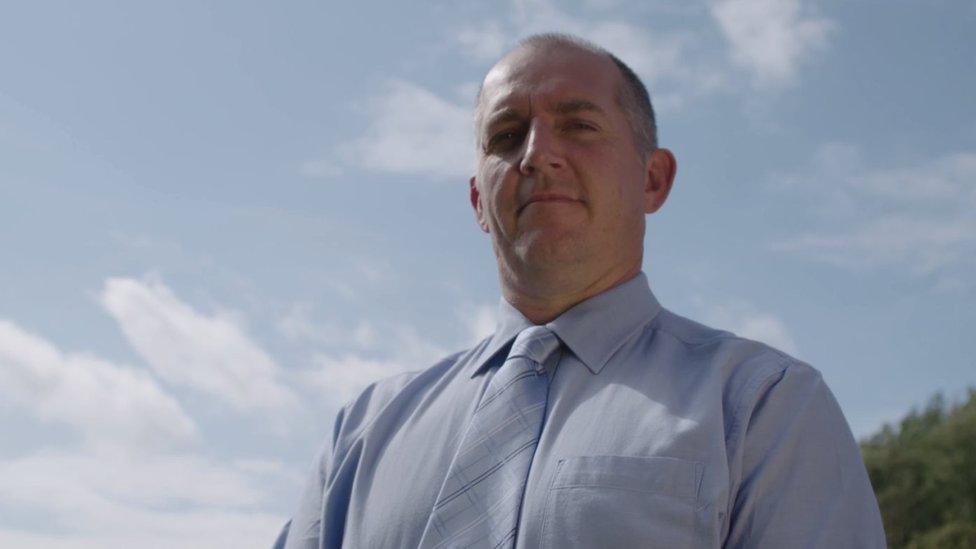
Sgt Alexander Blackman - also known as Marine A - was released from prison in 2017
Blackman, Mr Deen's former comrade, was initially convicted of the insurgent's murder.
This was reduced to manslaughter on appeal and he was released from prison in April 2017, having served more than three years.
He told the Victoria Derbyshire programme that after a "difficult" time he was now moving on from the incident, ensuring it did not "define who I am".
"I look back and there's a lot to be proud of [from my time in the Royal Marines], I did a lot of things," he said.
Blackman has now started a new role with not-for-profit community organisation ExFor+, supporting veterans returning to civilian life.
"The Royal Marines family as a whole have been very welcoming, very supportive when I've needed it. So for me it's not been too bad at all," he explained.
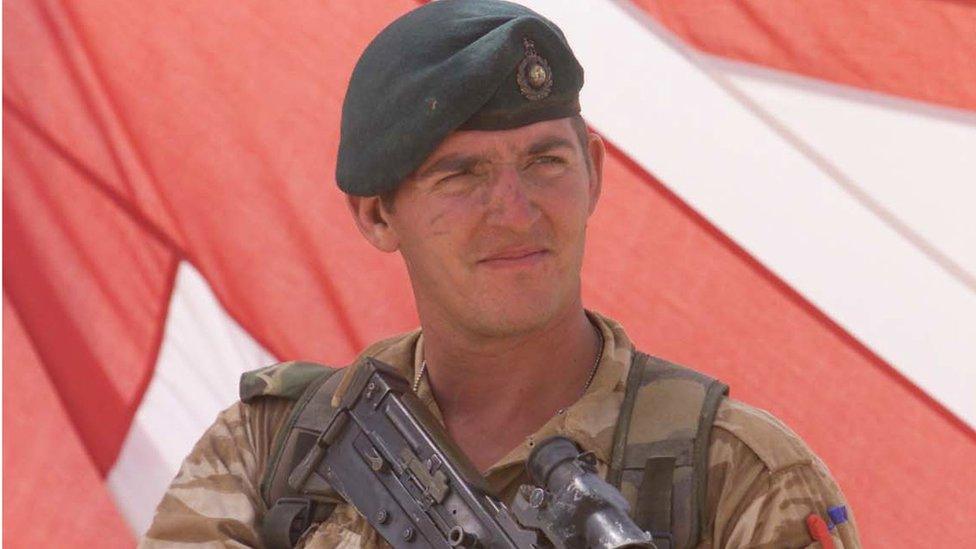
Sgt Blackman had more than 13 years of service in the Armed Forces
When Blackman was released from prison in 2017, judges were told he had a recognised mental illness at the time of the killing, in September 2011.
He said this had been "situation and location-specific", and he was no longer suffering the same effects.
But he said more needed to be done to help those who were struggling and "perhaps slip throughout the cracks".
"I've had colleagues I've worked with who, unfortunately, have taken their lives recently since they've left service, because they were struggling with mental health issues and they've kept it bottled up," he said.
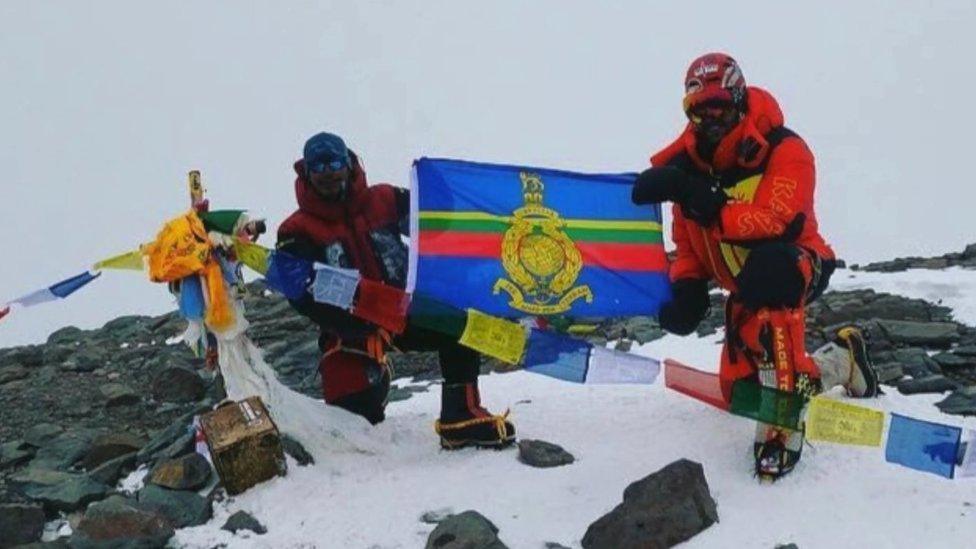
Mr Deen is now aiming to climb the highest mountain on each continent
One of those being helped by ExFor+ is Mr Deen, who has challenged himself to climb the "seven summits" - the highest mountains across the seven continents of the world.
"Week by week, day by day, I'm changing," he said.
"When I started climbing it gave me the boost I needed, like I'm achieving something."
Update 19 November: An earlier version of this story said Mr Deen had been acquitted of murder. This has been changed to say that charges were dropped.

Follow the BBC's Victoria Derbyshire programme on Facebook, external and Twitter, external - and see more of our stories here.
- Published28 April 2017
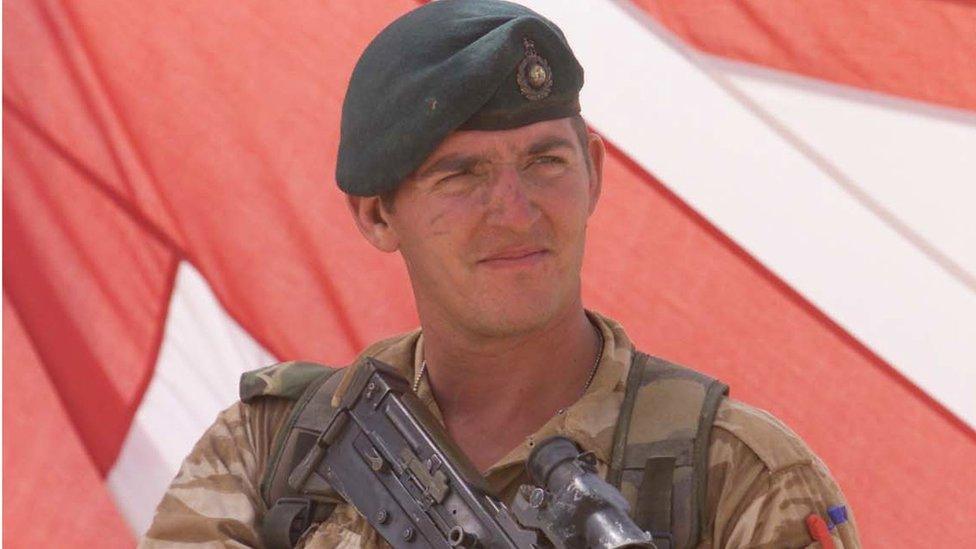
- Published18 April 2019
